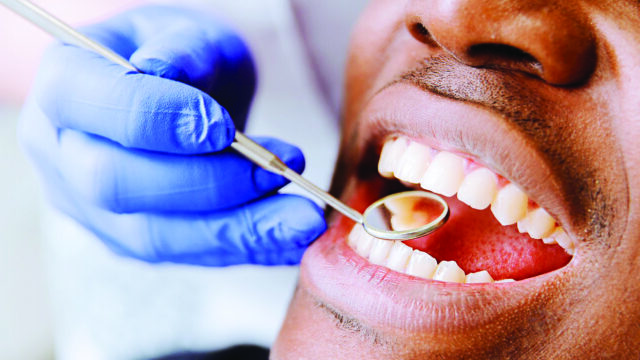By Agnes Kasemiire
Dental experts have linked the high number of people diagnosed with dental diseases in Uganda, and across the globe, to poor oral health and poor diets.
The commonly diagnosed dental diseases include caries- (holes in the teeth), cavities and gum disease.
“Lately, we are receiving children battling against dental carries, “notes Dr Nevis Agiraembabazi who heads the dental unit at Mengo Hospital.
Agiraembabazi notes that having children affected by dental caries at an early stage is an indication of poor feeding habits in homes and a gap in oral health.
Agiraembabazi attributes it to ignorance especially among parents or care givers.
“The dental disease problems that children are grappling with start from adults. If the adults are not sensitised on how to take care of the children’s teeth and what to feed them, we shall continue growing a population battling with dental issues,” she says.
She further explains that the burden of dental diseases is also high among adults, yet majority do not consider it as a health issue requiring urgent health care.
“Most people come to us when they are in pain or after suffering sleepless nights, yet many people do not consider dental disease as an issue because of ignorant or lack awareness,” she notes.
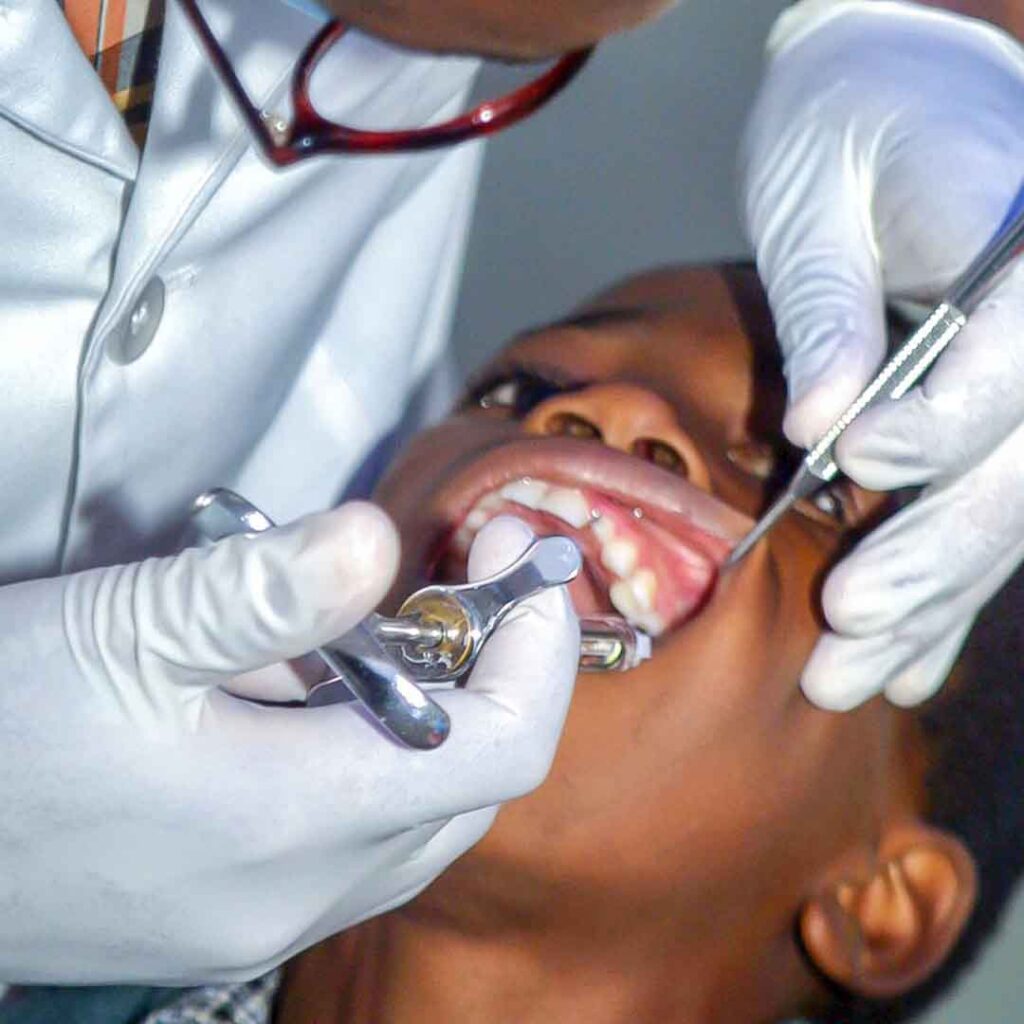
Dental care
Dr Kenneth Chapman, a senior consultant dentist at Mengo hospital, describes dental care as the practice of keeping one’s mouth clean and free of diseases.
This is achieved through regular brushing of the teeth and cleaning in between the teeth.
Chapman further describes dental care as the health of the teeth, gums, and the entire oral-facial system that allows us to smile, speak, and chew.
He says when oral hygiene is carried out on a regular basis, it prevents dental diseases and bad breathe.
Good dental health
Chapman notes that one way to ensure dental health is by keeping the teeth clean.
This can be done by cleaning or brushing the teeth three times a day, preferably after breakfast, lunch and before going to bed.
After brushing, one should not take any other thing except water.
“When you brush after dinner, you wake up with a clean mouth. All you need to do upon waking up is to brush without toothpaste then have breakfast and do full brushing (using tooth paste) afterwards.
Brushing teeth about thrice a day helps get rid of food particles that get stuck in between the teeth, giving you a bad odour or staining your teeth.
How to brush
Chapman advises to take about two minutes while brushing. “Brush the teeth slowly on all the surface of the teeth, both in the upper and lower jaw, and the tongue, then brush up and down while holding the brush and moving it in circular form.
“The horizontal method is not recommended because then the brush does not get to all spaces between the teeth.”
He, however, quickly notes that the teeth play important roles in our lives. They help us chew and digest food, talk, speak clearly and also give our face its shape.
Ideal tooth paste
Doreen Mukisa, who operates a private dental clinic surgeon in Masakad recommends toothpaste that contains calcium and fluoride.
Mukisa says calcium in the paste strengthens teeth while the fluoride neutralises acids that cause tooth decay.
Agiraembabazi warns against using hard tooth brushes because they injure the gum. She further notes that the tooth brush should be changed after two months.
“When you use the toothbrush beyond two months, the bristles are worn out, thus lost its effectiveness,” she says.
Additionally, if one is not cleaning the tooth brush regularly, it accumulates bacteria which can cause gum disease.
She also discourages brushing vigorously as it is associated with erosion of the enamel.
Agiraembabazi warns against using teeth for anything other than chewing food otherwise you risk chipping or breaking your teeth.
For example, opening bottle tops or breaking sugarcane using teeth is discouraged because it can lead to chipping or breaking of teeth.
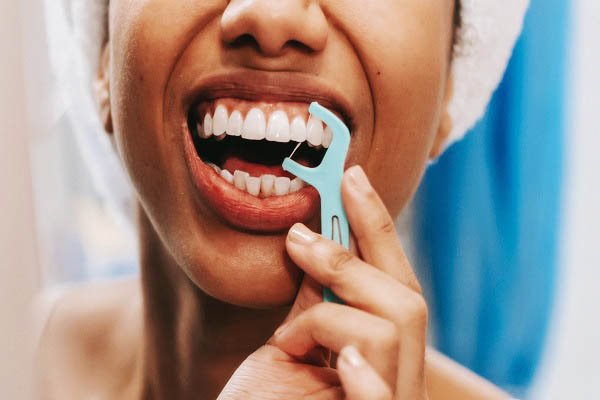
Floss your teeth
Alternatively, you can clean your teeth by flossing. Teeth flossing compared to brushing is unpopular yet it is one effective method of keeping the teeth clean.
Flossing is the cleaning of the areas between teeth using a dental floss.
When done about thrice a week, flossing removes bacteria and prevents bad breath.
“90 per cent of bad breathe cases are due to odour-causing bacteria, which feeds on the food particles that get stuck in the teeth,” Chapman says.
He advises to apply tooth paste before starting to floss because it helps to strengthen the teeth.He also notes that dental floss requires patience.
A dental floss is a bundle of thin nylon filaments or a plastic ribbon, commonly supplied in plastic dispensers that contain 10-50 meters of string.
It is meant specifically for removing food particles and dental plague from in-between the teeth better than toothpicks and brushes.
Depending on the size, the floss costs between Shs5, 000 and Shs 6,000 in supermarkets and pharmacies around town.
How to floss
Pull out the floss filament and slide it against a small protected blade in the dispenser to sever it.
Guide it in between the teeth and the gum line on both the upper and lower jaws, to remove food particles, plague and bacteria from your mouth.
“The easy way to handle floss is to tie it around both middle fingers leaving around five inches between the fingers,” Chapman says, adding that this allows the pointer fingers and the thumbs to pinch and guide the floss between the teeth with more control.
“While flossing”, he adds, “rotate a clean section of the floss to clean each side of the teeth to avoid transmitting bacteria from one tooth to another.”
Do not wrap the dental floss too tightly on the fingers as it can reduce circulation. Secondly, be gentle while you floss to avoid injuring the gums.
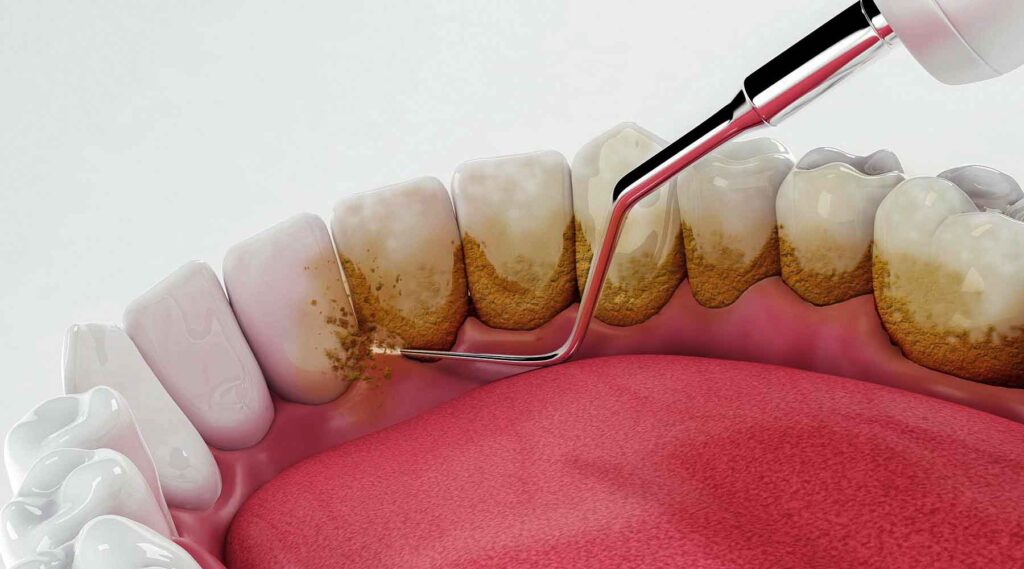
Scaling and polishing
Dr James Obua, a dental surgeon at Industrial Medical Services in Kamwokya, says the best way to remove tartar and stains on the teeth is by scaling and polishing.
The procedure leaves the surface of the teeth clean and smooth.
He explains that tartar is removed by the use of manual scalars and an ultrasonic instrument which uses tickling vibrations to knock larger pieces of tartar loose.
The ultrasonic instrument sprays a cooling mist of water while it works to wash away debris and keep the area at a proper temperature.
Avoid sweets and sugars
“Desist eating sweets, chocolates, other sugary snacks and processed juices. When you take sweet things, they make the environment in the mouth acidic. After eating, that environment in the mouth remains acidic for about thirty minutes,” Chapman warns.
Over time the enamel dissolves and cavities or caries (holes) starts to develop.
He also faults people who take sugary tea through-out the day. The danger with this practice is that the sugar in the tea also causes an acidic environment that makes bacteria to thrive.
Taking cough syrups for a prolonged period is discouraged because they too, contain sugars that spoil teeth over a period of time.
Alcohol and tobacco
Substances (alcohol and tobacco) stain the teeth, consequently attracting bacteria in the mouth, notes Obua.
He further says that accumulation of bacteria in the mouth leads to gum disease.
Routine checks
Chapman notes that as long as one has teeth, they can go for dental check-up.
He recommends visiting the dentist about twice a year to check for any developing cavities or gum inflammation.
Additionally, you can visit the dentist at least once a year to have your teeth cleaned thoroughly.
If you are battling gum disease, it is recommended to visit the dentist at least three times in a year.
Bad breathe
Bad breathe also referred to as halitosis can be a huge turn off. It stems from poor oral hygiene.Gum, throat, lung and stomach infections, tooth decay have been linked to bad breath.
Smoking, chewing tobacco or tobacco based products and keeping quiet for a long time lead to bad breath, Agiraembabazi notes.
Certain foods such as ground-nuts, garlic and onions contain pungent oils which contribute to bad breathe.
The smell of such foods escapes into the lungs, which in turn affects the air that is exhaled. Therefore, regular flossing or brushing of teeth and tongue can help keep bad breathe at bay.
“Alternatively, you can brush using powdered charcoal which helps to absorb all toxins in the mouth,” says Moses Ssenoga, a herbal therapist.
He adds that one can use green juice extract or chlorophyll from parsley and spinach to brush your teeth.
Drinking the solution or even juice extract from Ebombo and vernoniaamygydalina (omululuza) or chewing katunkuma, mango and guava leaves is believed to stop bad breathe.
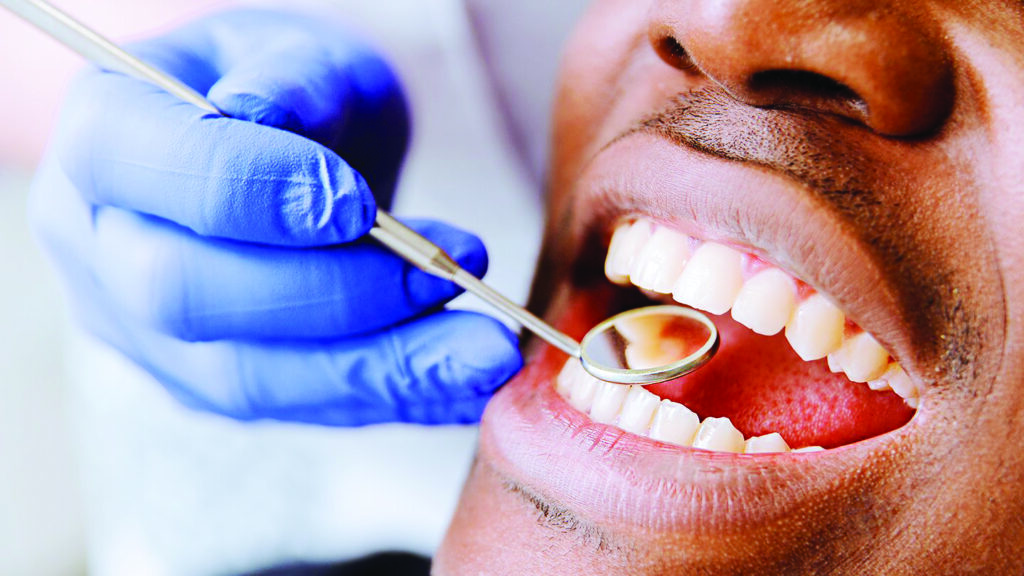
Managing caries
Obua acknowledges that the incidence of dental caries is higher in children and blames it on their teeth being weak.
Additionally, unhealthy habits of eating sweet and sugary things, and inability to observe good oral hygiene because they cannot clean their teeth thoroughly makes them prone.
“Dental caries are caused by bacteria which act on certain foods in the mouth like sugary foods and drinks.
“The bacteria change the sugar into acids which slowly dissolves the enamel of the teeth, creating a cavity or a hole in the teeth,” he explains
Obua warns that if the cavities happen, a filling may be needed. If it is left untreated, the tooth may decay further and need to be removed.
Obua says children should brush their teeth regularly, preferably after every meal or at least twice a day. Chapman encourages parents and guardians to help children clean their teeth as well.
“It is important to give them small amounts of tooth paste to guard against swallowing big amounts since they cannot spit,” he says.
In the same breath, Obua notes that helping children to brush their teeth should start as soon as the teeth appear and are long enough to be brushed. This enables them get into the habit of brushing early.
Because children do not like their teeth to be brushed, he advises parents and guardians to be patient while helping the children to brush.
One way of achieving that is by turning it into a game. Gradually, they develop the habit and by the age of three or four, they can clean their own teeth though under supervision.
Mukisa warns that children’s gum is delicate and should be handled with care.
As opposed to ordinary toothpaste, children tooth paste commonly known as junior toothpaste is ideal because it is favoured which entices children to brush.
















